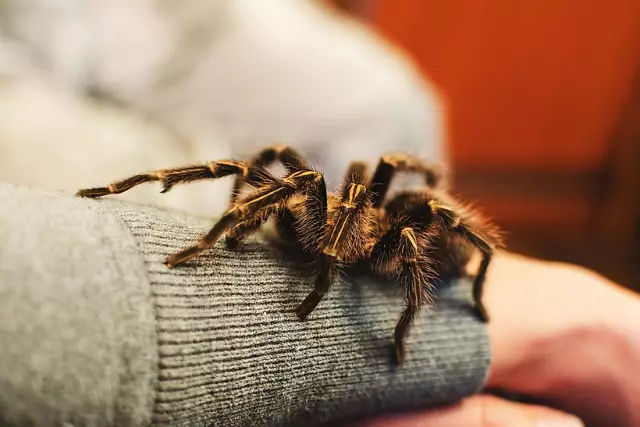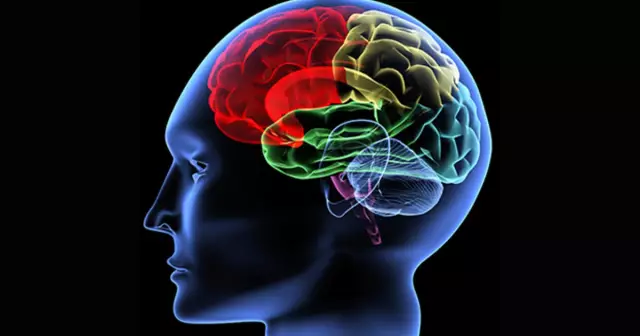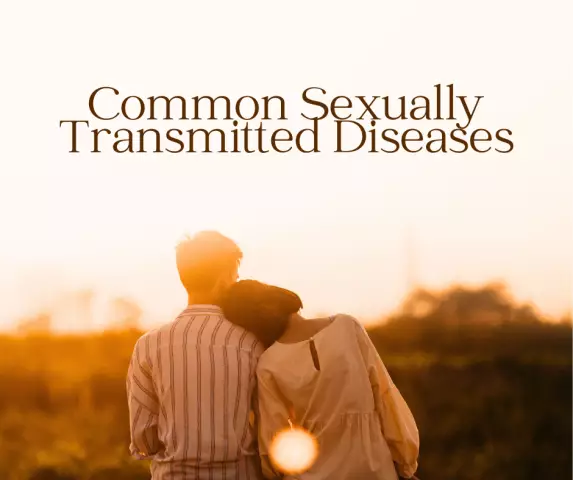- Author Rachel Wainwright [email protected].
- Public 2023-12-15 07:39.
- Last modified 2025-11-02 20:14.
10 most common phobias in the world
Phobia is an obsessive fear of a certain content, which in a particular situation arises against the will of a person. Phobia and fear are similar, but fear is a natural protective function of the psyche, and phobia is its deviation. A person may experience an unaccountable, unreasonable fear, accompanied by neurotic symptoms (sweating, shivering, chills), before ordinary events - for example, a trip to the subway, meeting a dog. Psychotherapists have identified over five hundred different phobias, but in modern life there are often no more than a dozen. Let's look at ten of the most common ones.
Nobodyphobia (fear of the dark)
The most popular fear of our time, which has no age or gender restrictions. Eight out of ten children are afraid of the dark; after 18 years, ten out of a hundred admit their fear of nightfall. Nymphobia manifests itself in the form of a panic state, not just before the darkness itself, but in those terrible pictures that the patient's imagination draws against its background. If the fear of the dark does not go away with growing up, as usual, then uncontrolled nytophobia can become a trigger for cardiovascular pathologies and problems with the central nervous system.

Source: depositphotos.com
Acrophobia (fear of heights)
The fear of heights is the second most popular, it affects the psyche of more than 7% of the world's population. Acrophobia manifests itself in the form of unaccountable anxiety in situations that provoke neurosis: air travel, traveling by cable car, looking from the window of a high-rise building. According to patients, during anxiety attacks, they can not control either their thoughts or actions, and some struggle with the compulsion to jump down, although in everyday life such people do not have a tendency to suicidal behavior.

Source: depositphotos.com
Aerophobia (fear of flying airplanes)
Fear of flying makes life difficult for every tenth airline passenger. The disorder manifests itself in the form of anxiety, fear of a possible catastrophe. Sometimes it is provoked by other phobias - fear of heights or thanatophobia (fear of death). The first symptoms of aerophobia - tension, urge to vomit, headache - begin before the flight and reach their climax during takeoff, accompanied by panic attacks and an unconscious desire to leave the vehicle.

Source: depositphotos.com
Claustrophobia (fear of confined spaces)
The clearest example of claustrophobia is the fear of elevator rides. People with this disorder experience a range of negative emotions in confined spaces, from a slight increase in heart rate to fainting. According to statistics, about 5-7% of the world's population suffers from severe claustrophobia, accompanied by panic attacks. In this case, symptoms of the disorder can be triggered even by wearing tight clothing or an overly tight tie.

Source: depositphotos.com
Aquaphobia (fear of water)
According to psychotherapists, the most common cause of an unaccountable fear of water is the psychological trauma associated with it, experienced in the past. Aquaphobia makes life difficult for every second person who is faced with an accident on the water. Severe symptoms of physiological hydrophobia in the form of swallowing convulsions and the inability to take a sip of liquid are observed in patients with tetanus and rabies.

Source: depositphotos.com
Ophidiophobia (fear of snakes)
Almost every squeamish person is a little ophidiophobic, but the fear of snakes in a patient suffering from ophidiophobia is much stronger. The pathological fear of snakes is accompanied by obsessive thoughts about the likelihood of a reptile entering the home, a poisonous bite, etc., and in some cases, being intensified by the fear of death, takes the form of a severe mental disorder.

Source: depositphotos.com
Hematophobia (fear of the sight of blood)
Increased heart rate, sweating, pallor, hypotension, fainting are signs that the natural disgust at the sight of blood has turned into pathological fear and the person needs psychological help. The main cause of hematophobia is considered to be a hereditary predisposition, however, the disease often arises as a result of unskilled medical actions and childhood injuries - in more than 40% of cases of illness.

Source: depositphotos.com
Thanatophobia (fear of death)
Thanatophobia is a complex psychological disorder closely intertwined with the life philosophy of the patient. The state of uncontrollable fear of physiological death and its attributes can be caused by psychological trauma associated with the loss of loved ones, with religious beliefs. Often thanatophobia appears when a midlife crisis is unsuccessful, and then psychological correction is difficult.

Source: depositphotos.com
Autophobia (fear of being alone)
The usual causes of autophobia, which does not give up its positions in modern society, are traumatic situations associated with the loss of a loved one, as well as mistakes in upbringing in childhood. Phobia is gaining popularity among residents of megacities, who, being in an atmosphere of constant employment, alone begin to experience boredom, discomfort, anxiety, and a sense of their own uselessness. In severe cases, panic attacks occur and even suicide attempts occur.

Source: depositphotos.com
Glossophobia (fear of public speaking)
The excitement before a public speech, according to psychologists, is visited by more than 95% of people, being natural for the psyche, but no more than 3% of them are real glossophobes. A feature of a phobia is an unaccountable fear of any public performance, accompanied by tremors, changes in blood pressure, loss of the ability to speak, even if you have to speak in front of a well-known audience. Common causes of glossophobia include low self-esteem, negative childhood experiences, and an introverted mind.

Source: depositphotos.com
YouTube video related to the article:

Maria Kulkes Medical journalist About the author
Education: First Moscow State Medical University named after I. M. Sechenov, specialty "General Medicine".
Found a mistake in the text? Select it and press Ctrl + Enter.






